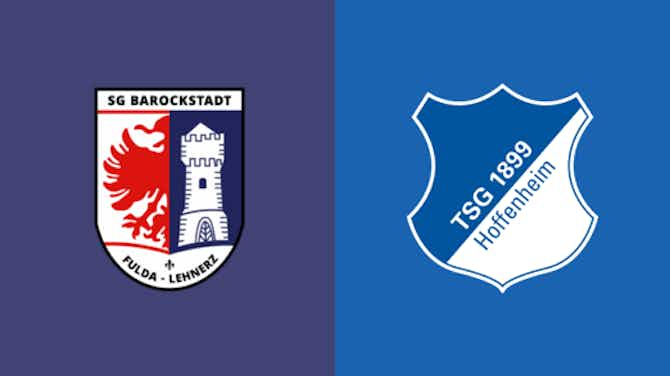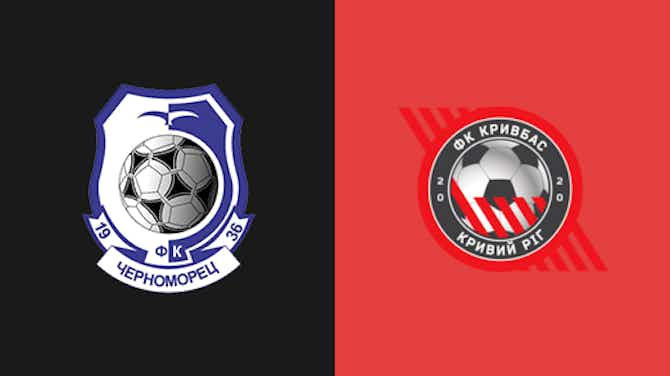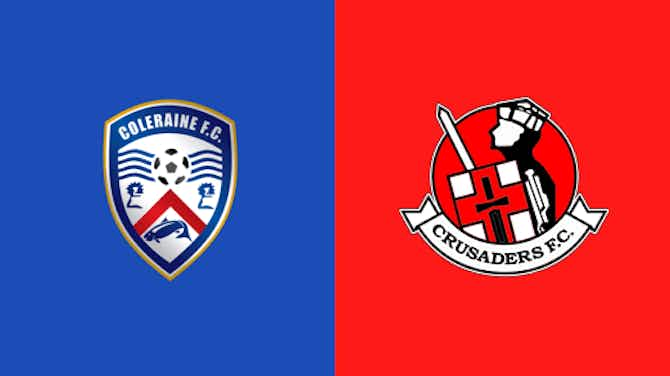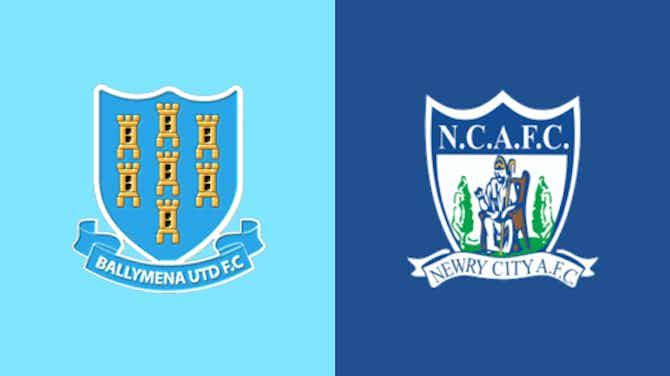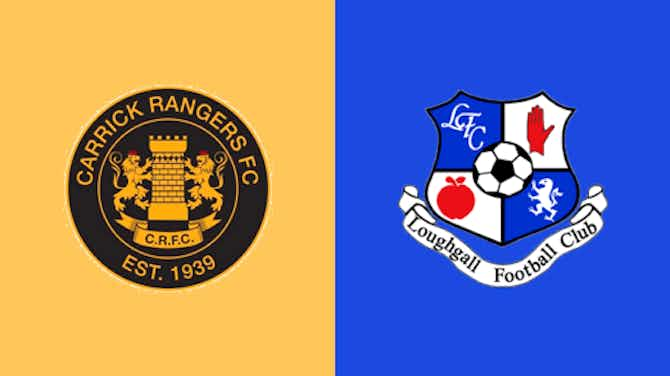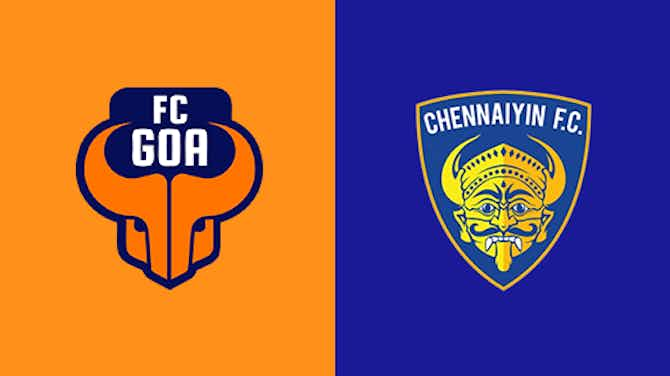Anfield Index
·28 November 2020
Tactical Breakdown: Liverpool 0-2 Atalanta
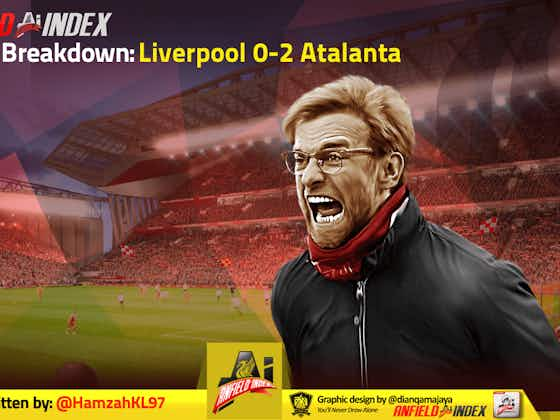
Anfield Index
·28 November 2020

Gian Piero Gasperini’s Atalanta is a fascinating side. In their 0-5 loss to Liverpool at the Bergamo Stadium they displayed a number of interesting tactical concepts that in themselves were reasonable, astute and innovative, but were ruthlessly dismembered by a Klopp side at its cutting edge best. Central to that performance was the ability of the forwards and midfielders to synchronise their movements to drag the Italian side’s players out of key areas, and use direct passing, dribbling and excellent one-on-one behaviour to beat the Atalanta press and break into space. Everything that the Reds did so well a few weeks ago they did not do at Anfield.
Ball speed
To pass through or around a defensive unit, the team in possession needs to move the ball quickly, both laterally and vertically. The lateral movement across the pitch is especially important as it shifts the defending side’s lines from side to side, as they follow the ball. As they do this, opportunities arise for spaces to develop between players, and the team in possession to exploit these spaces.
To remedy this, Atalanta structured themselves more tightly when out of possession, but also pressed extremely effectively in central areas to force Liverpool backwards and away from their forwards. Liverpool did not react sufficiently well, with their ball speed fairly slow across the match, and thus easy to defend against.
The man-to-man press
Liverpool were unable to break the Atalanta press due to a lack of forward impetus from deep, and an effective and well-targeted Atalanta pressing effort. This included the Italian side forming a midfield box around Gini Wijnaldum. Using their no.10 and two forwards, they looked to apply pressure to Liverpool’s centrebacks, and cover passes into Wijnaldum – forcing the Reds into wide areas. The front three were supported by a double pivot which pressed up into the half spaces, attempting to cover out balls to Milner or Jones and when the occasion arose, they would look to press Wijnaldum from multiple sides with the forward line.
Personnel changes
Without Alexander-Arnold and Robertson in the wide areas, Liverpool was noticeably bereft of quality forward impetus from deep. But this was compounded by the actual forward line too. With Divock Origi in place of Roberto Firmino the dynamic of the forwards was very different. Origi looked to push up against the Atalanta defensive line, but in doing so, the space between the Reds’ midfield and forward line grew bigger, and meant the attackers were harder to access. Not only this but Firmino’s presence in the halfspaces and in a deeper position often offers relief for the midfield three when they’re pressed or looking for passing options. Without Firmino, it was much easier for Atalanta to press our midfield, but also much harder for the home team to break through that press.
Origi struggled throughout the game, but it’s unfair to lay a significant portion of blame with him because he has never been a player who is comfortable dropping deep to support midfield buildup and linking up with the forwards. The blame can be shouldered by a number of Liverpool players, with their decision making poorer and slower than usual. The fast almost instinctive movement which allowed the Reds to exploit the Atalanta man-to-man press away from home only a few weeks ago was absent, and in place of that Atalanta were able to impose themselves onto the game.
Without progressive passing and overloads in the middle of the pitch, the forwards remained largely inaccessible, and the lack of passing between the lines begot a lack of movement between the lines, making it harder and harder to break through Atalanta.
The away side showed great tactical versatility though, attacking space in the wide areas effectively, breaking through the non-existent Liverpool press – which was a key feature of the excellent first half at the Bergamo Stadium. Without the press, they was unable to direct where the ball went, the pace of the game and so the ability to control space lay with Gasperini’s men.
Everything that Klopp’s men did so well in the reverse fixture was absent, but Gasperini’s men gave a strong display in defence of their tactics and system, executing their defensive plan well, controlling where Liverpool went with the ball, seizing upon mistakes and completely stifling the opportunities for Salah and Mané. It’s completely bizarre how this performance, in every possible way, was the opposite of the previous matchup. I honestly believe if you read the match report from that game, here, it’s easier to understand what we did so well, and the comparison is literally night and day, two polar opposites, the two ends of a spectrum.
This was simply a terrible performance. Shot creation was non-existent, the speed of play was lethargic, whilst the vibe was timid and aimless. With so many changes, so little rest time, but also the knowledge that losing this fixture does not have any present repercussions, this game can be understood and contextualised a little better. We know the team is so much better than what we saw at Anfield, indeed we not only saw it in the reverse fixture, but also a few days ago against Leicester, a game in which Klopp’s men put up some of their best-attacking statistics ever!
In this extraordinary season, perhaps we should cut this side some slack. But the issues of how Liverpool can play against technically skilled sides without Roberto Firmino is not entirely clear; Divock Origi does not seem like the answer to that issue, but it’s also important to ask where the press went too. In a game in which pressing Atalanta effectively would have certainly changed the flow of the game and the opportunities in the game, it’s strange to see a side famed for the best press in the world elect to not use it. This game leaves plenty to ponder on, but there’s very little time to do so with another fixture awaiting the champions on the weekend. This was a dreadful performance, but hopefully an anomaly. This side has earned the right to be afforded the benefit of the doubt, but if these same issues arise again, perhaps a closer inspection will be required.





















